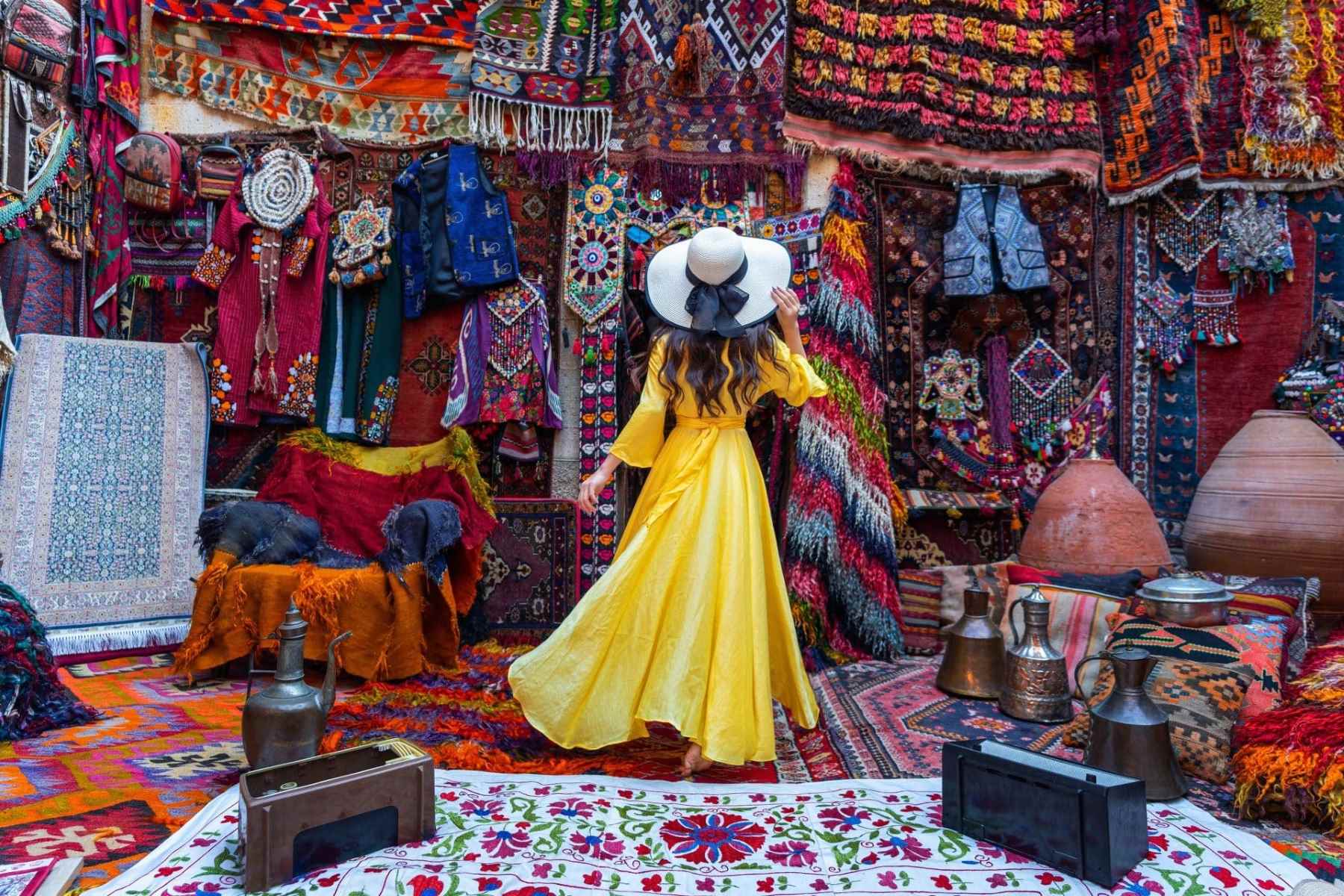Intriguing Turkish Traditions You Never Knew Existed

Turkey, a country rich in history and culture, boasts some truly unique traditions. Have you ever heard of the Whirling Dervishes? This mesmerizing dance, performed by followers of the Mevlevi order, symbolizes a spiritual journey. Another fascinating custom is Nazar Boncugu, the blue evil eye amulet believed to protect against negative energy. Turkish tea, served in tulip-shaped glasses, plays a significant role in social gatherings. Then there's Hıdırellez, a spring festival celebrating the meeting of prophets Hızır and İlyas. These traditions, among many others, make Turkey a captivating destination for anyone interested in experiencing diverse cultural practices.
Turkish Coffee Fortune Telling
Turkish coffee isn't just a drink; it's an experience. After sipping the last drop, the remaining grounds are used for fortune telling. This tradition, known as "tasseography," involves interpreting the patterns left by the coffee grounds in the cup.
Preparation Ritual: The coffee is brewed in a special pot called a "cezve" and served in small cups. Once finished, the cup is turned upside down onto the saucer to cool.
Reading the Grounds: A fortune teller, or even a friend, will interpret the shapes and symbols formed by the coffee grounds. Each pattern has a different meaning, revealing insights about love, career, and future events.
Sharing the Experience: This practice often takes place in social settings, making it a fun and engaging activity among friends and family.
Evil Eye Protection
The evil eye is a common belief in Turkey, where it's thought to protect against jealousy and negative energy. This tradition involves using a blue and white glass bead, known as "nazar boncuğu," to ward off bad luck.
Widespread Use: You'll find these beads everywhere, from homes and cars to jewelry and keychains. They are believed to absorb negative energy and protect the wearer.
Gift-Giving: It's common to give an evil eye bead as a gift, especially to newborns and newlyweds, to ensure their protection and well-being.
Cultural Significance: The evil eye symbol is deeply rooted in Turkish culture and is often incorporated into various forms of art and decoration.
Henna Night Celebrations
Henna nights, or "kına gecesi," are an essential part of Turkish wedding traditions. This pre-wedding celebration is dedicated to the bride and involves applying henna to her hands and feet.
Symbolism: Henna is believed to bring good luck and protect the bride from evil spirits. The intricate designs also symbolize joy and happiness.
Festive Atmosphere: The event is filled with music, dancing, and traditional songs. Female relatives and friends gather to celebrate and support the bride.
Emotional Farewell: Henna night is also a time for the bride to say goodbye to her family, as she prepares to start a new chapter in her life.
Whirling Dervishes
The Whirling Dervishes are part of the Mevlevi Order, a Sufi sect founded by the poet Rumi. Their mesmerizing dance, known as the "Sema," is a form of spiritual practice.
Spiritual Journey: The dance represents a journey towards spiritual enlightenment. Dervishes spin in circles, symbolizing the rotation of the universe and the soul's ascent to God.
Cultural Performances: While the Sema is a religious ritual, it has also become a popular cultural performance, attracting tourists and locals alike.
Symbolic Attire: Dervishes wear white robes, symbolizing purity, and tall hats, representing tombstones of the ego. The dance is a visual and spiritual spectacle.
Oil Wrestling
Oil wrestling, or "yağlı güreş," is Turkey's national sport and has been practiced for centuries. Wrestlers, known as "pehlivans," cover themselves in olive oil and compete in matches.
Historical Roots: This sport dates back to ancient times and is deeply embedded in Turkish culture. It combines physical strength with strategy and skill.
Annual Festivals: The most famous oil wrestling festival takes place in Kırkpınar, attracting competitors and spectators from around the world.
Unique Challenges: The oil makes it difficult for wrestlers to maintain a grip, adding an extra layer of challenge and excitement to the matches.
Hıdırellez Festival
Hıdırellez is a spring festival celebrated on May 5th and 6th, marking the arrival of spring and the renewal of nature. This tradition involves various rituals and activities to bring good fortune.
Wishes and Dreams: People write their wishes on paper or tie them to trees, hoping they will come true. Some even place their wishes under a rose bush overnight.
Bonfires and Dancing: Jumping over bonfires is a common practice during Hıdırellez, symbolizing purification and the welcoming of new beginnings. Dancing and music add to the festive atmosphere.
Community Spirit: The festival brings communities together, fostering a sense of unity and shared joy. It's a time for celebration, reflection, and hope for the future.
Embracing Turkish Traditions
Turkish traditions offer a rich tapestry of culture and history. From whirling dervishes to Turkish coffee fortune-telling, these customs provide a glimpse into the soul of Turkey. Participating in a hamam or enjoying a Turkish tea ceremony can make your visit unforgettable. Each tradition, whether it's the Henna Night or oil wrestling, tells a unique story.
Experiencing these traditions firsthand allows you to connect deeply with Turkish culture. They are not just activities but ways to understand the values and history of the people. Next time you visit Turkey, take the time to engage with these traditions. They will enrich your travel experience and leave you with lasting memories. Turkey's traditions are a treasure waiting to be explored, offering something special for every traveler.

